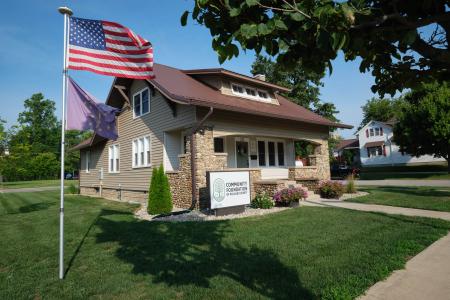National Philanthropy Day: Your Role in Inspiring Family Giving
Your planned giving team has the unique opportunity to walk alongside those donors who want to establish family legacies of giving.
14 November 2025

Rebecca Wood, J.D.
Indiana Bar Association
A family legacy of giving rarely begins in a lawyer’s office. It starts at the dinner table, during volunteer experiences, and through countless small conversations that convey why giving matters. Your planned giving team has the unique opportunity to walk alongside those donors who want to establish family legacies of giving.
Tomorrow is National Philanthropy Day. This is a day to celebrate generosity and a reminder that your team can play a key role in helping donors articulate and share their philanthropic values. Some donors are passionate about building legacies rooted in impact, not just assets. By encouraging family discussions about legacy giving, you can help create a ripple effect of generosity. Instead of preserving one gift, you’re cultivating future generations of givers dedicated to supporting your organization.
The following FAQ highlights practical ways your team can help donors and their families turn shared values into lasting legacies.
How can I help donors understand the value of family conversations about philanthropy?
Highlight the many benefits of creating a family legacy of giving, including:
- Deeper connections with family members through shared values, meaningful exchanges, and intentional experiences.
- Greater confidence that their charitable goals will continue for generations to come. The Women Give 2018 study, conducted by the Women’s Philanthropy Institute (part of the Indiana University Lilly Family School of Philanthropy), found that nearly 81% of adult children give when their parents give.
- Stronger impact through collective resources. Families who share philanthropic values are more likely to give consistently and remain connected to the same organizations for multiple generations.
How should donors prepare for a family legacy discussion?
A legacy conversation is most powerful when donors can convey their thoughts, values, and goals clearly and with passion. Recommend that they think about their answers to the following questions before the discussion:
- Why do you believe it is important to make charitable gifts?
- Which causes are you passionate about and why?
- Which specific organizations do you support and why?
- How do you envision your legacy?
- Are there specific ways you would like your family to continue that legacy?
These reflections help donors express their motivations with clarity, authenticity, and emotion—a combination that can translate into a more meaningful discussion and a stronger family legacy commitment.
What steps should a donor take to make these conversations as impactful and motivational as possible?
Advance planning helps keep the conversation on track and simplifies any complexity. Encourage donors to:
- Choose an appropriate time and place for the discussion—ideally, when the family can be relaxed, uninterrupted, and unhurried.
- Include children and grandchildren in the conversation.
- Articulate values, goals, and legacy intentions clearly.
- Nurture an open, respectful forum where family members can express their own views and share their own beliefs, even if they differ from the donor’s.
- Identify common themes or shared priorities that can become the foundation for the family’s philanthropic vision.
- Create a charitable legacy plan where the family discusses and decides on gifts and records the reasons behind their choices.
How can my organization best assist donors with family legacy planning?
Planned giving teams are uniquely positioned to help families turn generosity into a legacy by connecting donors’ values to the missions they care about most. Your team can play a meaningful role by offering:
- Guidance. Educate donors on planned giving tools and strategies that encourage long-term family engagement, such as donor-advised funds, charitable trusts, and endowments. Offer to partner with the donor’s attorney and advisor as they decide on a giving vehicle.
- Inspiration. Help donors document their values, goals, and hopes for the continuation of their philanthropic legacy. Encourage them or assist them in writing and sharing their giving story. Introduce the idea of an ethical will—a nonbinding document that can outline legacy wishes and philanthropic values.
- Resources. Your team can provide many important resources, including:
- A workshop or webinar on creating family legacy plans.
- Success stories of families whose philanthropy has grown across generations and how their gifts have made a difference for those you serve.
- Print and digital materials—newsletters, guides, or videos—that inspire families to think about giving as part of their shared story.
- Invitations for the whole family to private tours, volunteer opportunities, legacy society meetings, or other special events.
National Philanthropy Day is a time to celebrate generosity and reflect on the legacies generosity can create. Consider how your team can help donors transform charitable intent into a meaningful legacy—one that strengthens family bonds and sustains your mission for generations to come.


